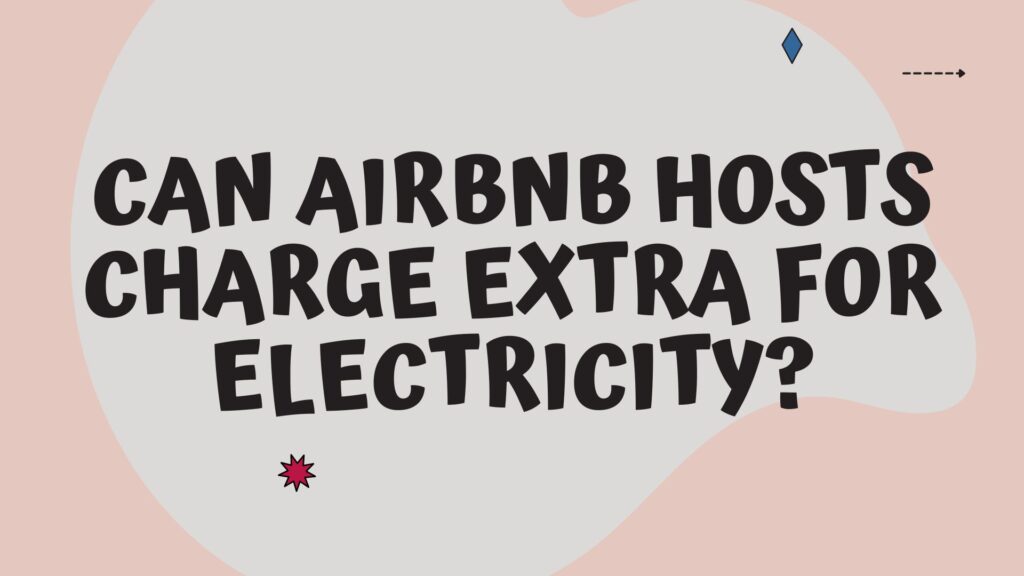Can Airbnb Hosts Charge Extra for Electricity in 2023
Airbnb has revolutionized the travel industry by providing travelers with a platform to rent short-term accommodations from homeowners. For homeowners, Airbnb offers a great way to make some extra income by renting out their homes, apartments, or spare rooms. One question that often arises when hosting on Airbnb is Can Airbnb Hosts Charge Extra for Electricity?

The short answer is yes, Airbnb hosts can charge extra for electricity. However, there are some things that hosts should keep in mind when doing so. In this article, we will explore the topic of whether Airbnb hosts can charge extra for electricity and provide some tips on energy saving that can help hosts reduce their electricity costs.
Can Airbnb Hosts Charge Extra for Electricity?
When it comes to charging extra for electricity, Airbnb allows hosts to charge an additional fee to cover the cost of electricity usage during a guest’s stay. However, this must be disclosed in the listing description and included in the price breakdown.
If a host wants to charge an additional fee for electricity, they must include it in the “Additional prices” section of their listing. This section allows hosts to add additional fees for things like cleaning, parking, and extra guests. The electricity fee should be calculated based on the average cost of electricity in the area and the expected usage during the guest’s stay.
It is important to note that charging extra for electricity can affect a host’s bookings. Guests may be deterred by an additional fee and choose to book a different listing that does not charge for electricity. Therefore, hosts should consider the impact of charging extra for electricity on their bookings before implementing this policy.
Tips for Energy Saving
Regardless of whether a host charges extra for electricity or not, it is always a good idea to implement energy-saving measures to reduce electricity costs. Here are some tips that Airbnb hosts can use to save energy and lower their electricity bills.
Use energy-efficient light bulbs
Replacing traditional incandescent light bulbs with energy-efficient LED bulbs is one of the easiest and most effective ways to save energy. LED bulbs use significantly less energy than incandescent bulbs and last much longer, which means hosts will save money on both energy and replacement costs.
- See also: 20+ Airbnb PRE Booking Message Examples
Unplug appliances when not in use
Many appliances continue to draw power even when they are turned off. This is known as “standby power” or “vampire power.” To reduce standby power, hosts should unplug appliances when they are not in use or use power strips with an on/off switch to make it easier to turn off multiple appliances at once.
Adjust thermostat settings
Heating and cooling accounts for a significant portion of a home’s energy use. By adjusting the thermostat by a few degrees, hosts can save a significant amount of energy and reduce their electricity bills. In the summer, hosts can set the thermostat to a higher temperature and use fans to circulate cool air. In the winter, hosts can set the thermostat to a lower temperature and use extra blankets and layers to stay warm.
Use natural light
Hosts can take advantage of natural light by opening blinds and curtains during the day. This will reduce the need for artificial lighting and save energy. Additionally, guests may appreciate the natural light and the view it provides.
Encourage guests to conserve energy
Hosts can encourage guests to conserve energy by leaving notes around the house reminding them to turn off lights and appliances when not in use. Hosts can also provide information on the benefits of energy conservation and the impact it can have on the environment.
Conclusion
In conclusion, Airbnb hosts can charge extra for electricity, but they should be mindful of the impact it can have on bookings. Additionally, hosts should implement energy-saving measures to reduce their electricity bills and help protect the environment.
